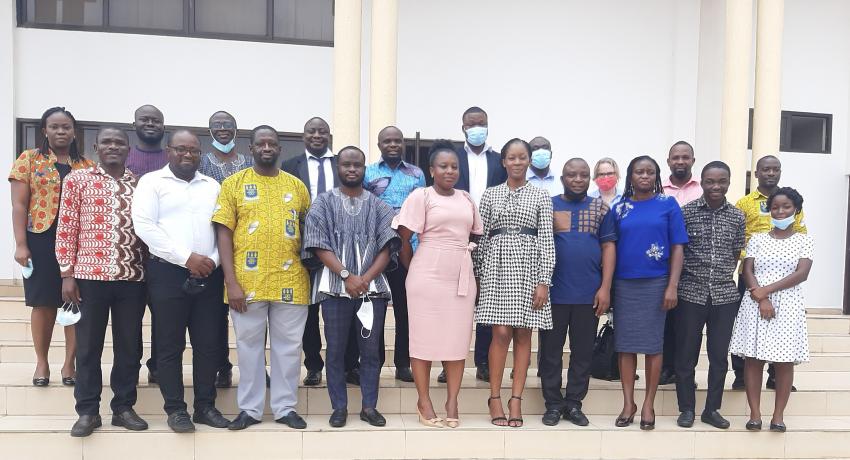Participants in a split second mask-less and non-communicative group photo
The Ghana research team of the Greening the Social and Economic Recovery in Ghana and Zambia project organised a workshop on 12 August 2021 at the ISSER Conference Facility. Dubbed scenarios building, the workshop provided a platform for stakeholders to contribute to co-developing a set of practical and aspirational scenarios or pathways for Ghana towards a resilient recovery from COVID-19 and a green development.
By bringing together representatives from public, private, civil society and donor organisations to engage with the researchers, exchange ideas and freely share their views, the workshop was valuable in advancing the project’s implementation process, while promoting consensus building – a fundamental feature of the Greening the Social and Economic Recovery in Ghana and Zambia project.
The Principal Investigator (PI) of the project in Ghana, Dr. Simon Bawakyillenuo, welcomed participants and thanked them for responding to the invitation to participate.
“Your presence is an indication that you want to be part of the success story of this project,” he said.
Workshop design and outcomes
Organised under strict adherence to physical distancing and other COVDI-19 safety measures, the workshop was inclusive and activity based, with flexibility for participants to either voice out their views, write them down or both. It was facilitated by Dr. Bawakyillenuo and Dr. Aba Crentsil (co-investigator), and it attracted a myriad of viewpoints, some synergistic and others divergent.
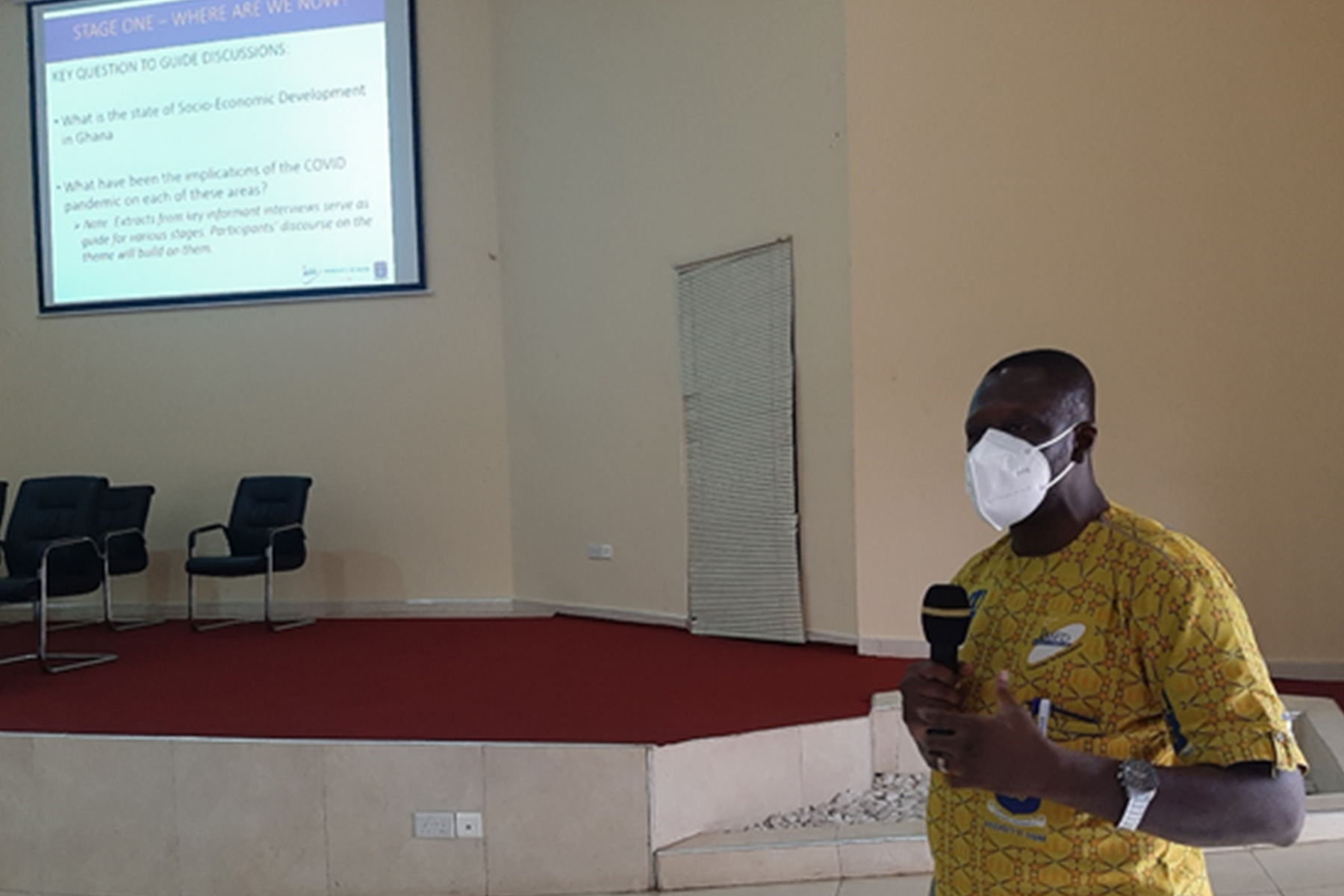
It drew and built on extracts from the previous key informant interviews, an initial activity under Work Package One of the project, which sought to generate evidence on the nature of the COVID-19 crisis in Ghana and the potential recovery options that address the Ghana National Determined Contributions (GH-NDCs) and the SDGs. In all, the workshop involved the discussion of seven (7) stages: where we are now in terms of socio-economic development; ambitions and aspirations; where we want to go from the present; prioritization of strategies for the future we want; reflections on the strategies; sequencing of prioritised strategies; identification of responsible institutions to champion the strategies, and challenges to overcome. While only one to three, out of the intended seven stages, were completed (as the time allotted for the workshop was limited in view of COVID-19 restrictions), participating stakeholders agreed to attend *a second workshop for finalisation of the outstanding stages.
Organisations represented at the workshop included: UNDP Ghana, British High Commission, CCG, HATOF Foundation, GIZ, NPA, GHACCO, ACEP, FC, MLGDRD, NDPC, MoFA, COPEC Ghana, IGC, MoGCSP, PFAG, etc.
*A follow-up workshop was organised on Thursday 2 September 2021 involving participants from organisations such as CCG, GIZ, NPA, GHACCO, NDPC, MoFA, IGC, and PFAG, that were part of the first workshop (12 August). Much like the first, the follow-up workshop was engaging, thereby fostering the completion of the four outstanding stages (prioritisation of strategies for the future we want; reflections on the strategies; sequencing of prioritised strategies; identification of responsible institutions to champion the strategies, and challenges to overcome) of the scenarios development process. Sights from this workshop are below.
About the project
The Greening the Social and Economic Recovery in Ghana and Zambia project seeks to unearth the possible green economic and social opportunities that can be integrated into the development policy architectures of Ghana and Zambia in the wake of the COVID-19 pandemic.
It is implemented by the Institute of Statistical, Social and Economic Research (ISSER), in partnership with University College London (UCL) in the UK, and the Zambia Institute for Policy Analysis and Research (ZIPAR), with funding from UK Research and Innovation (UKRI) – the United Kingdom’s main research funding agency, and runs from October 2020 to April 2022.
For more information on this project, click here.
More sights from the first workshop
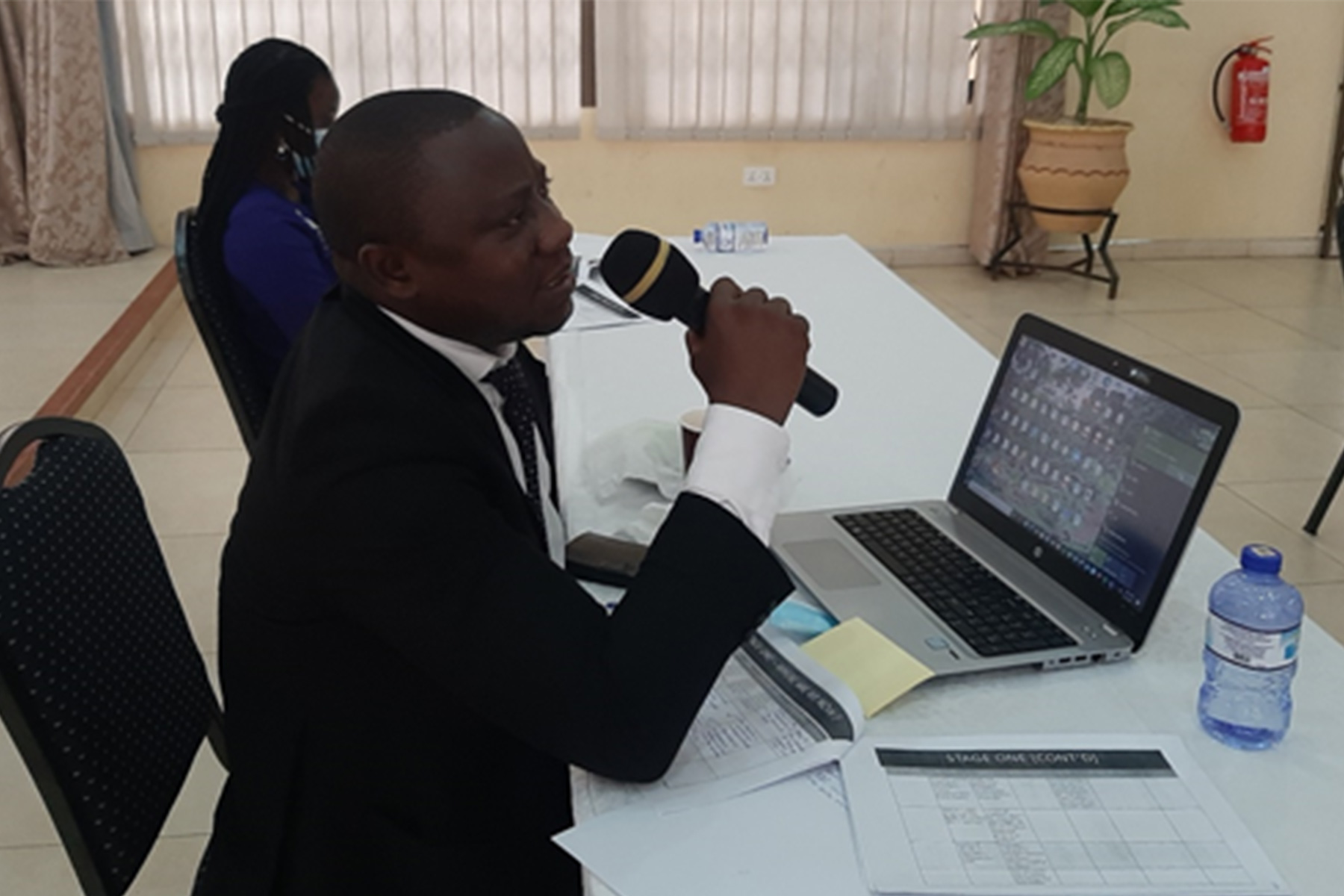
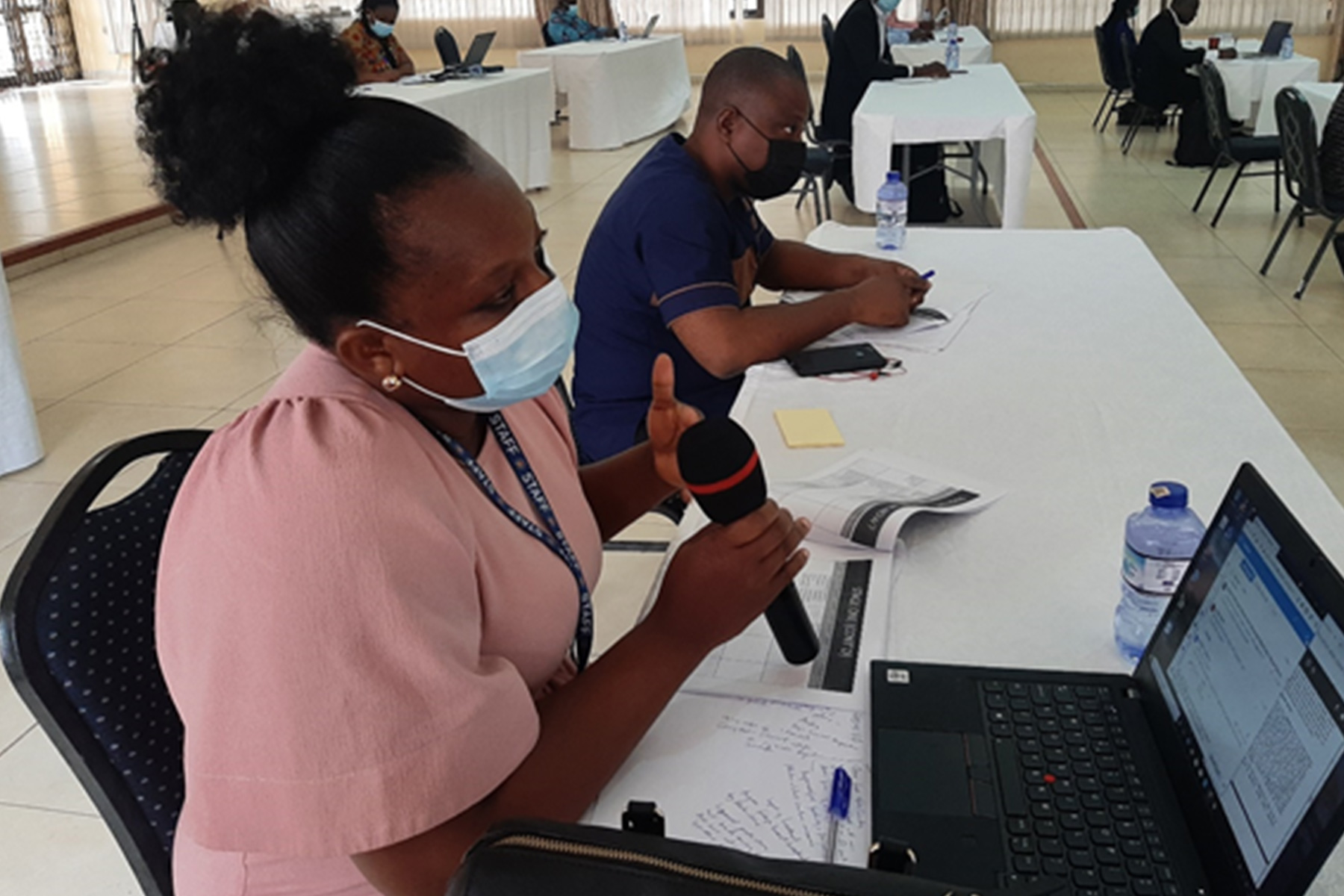
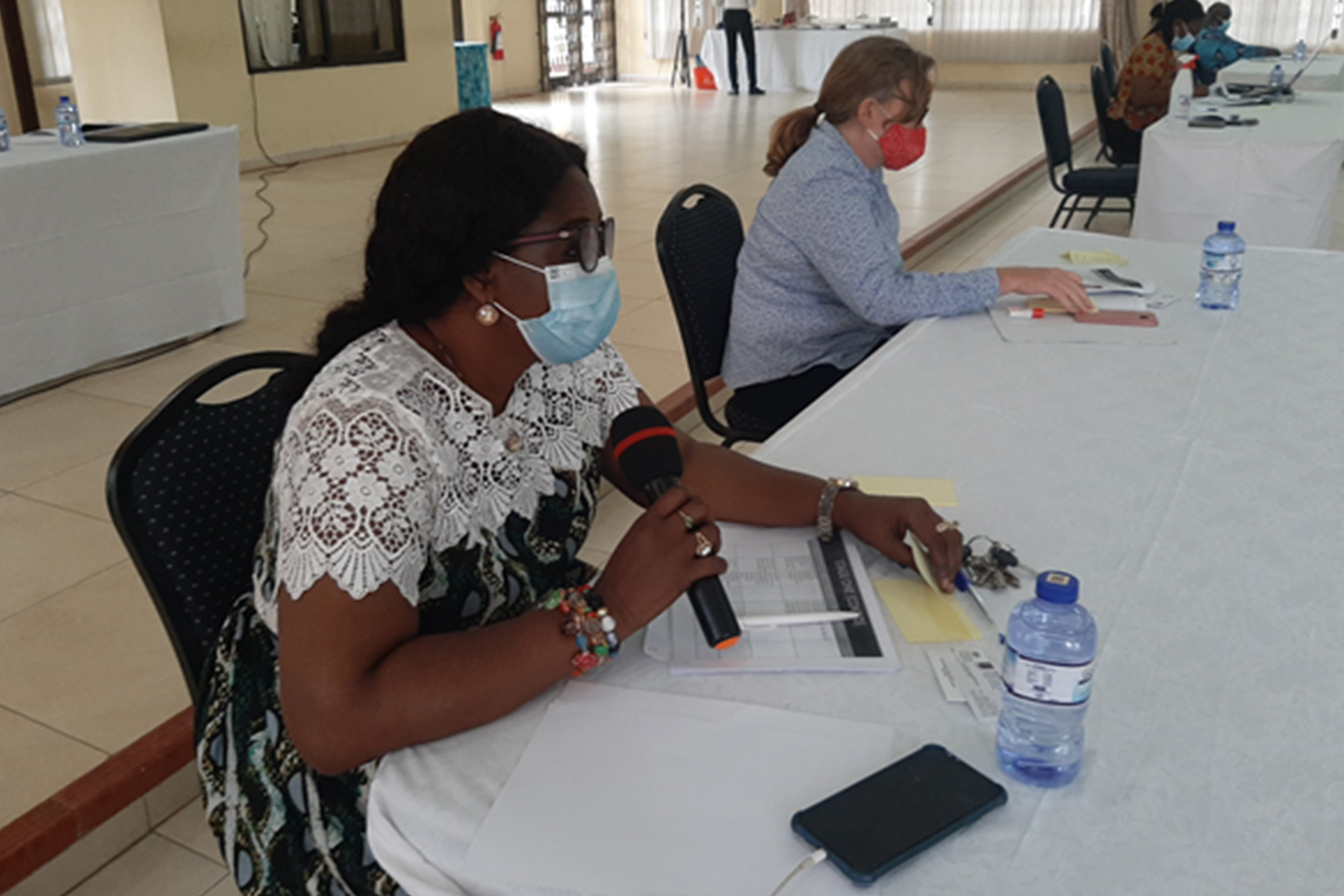
Sights from the follow-up workshop
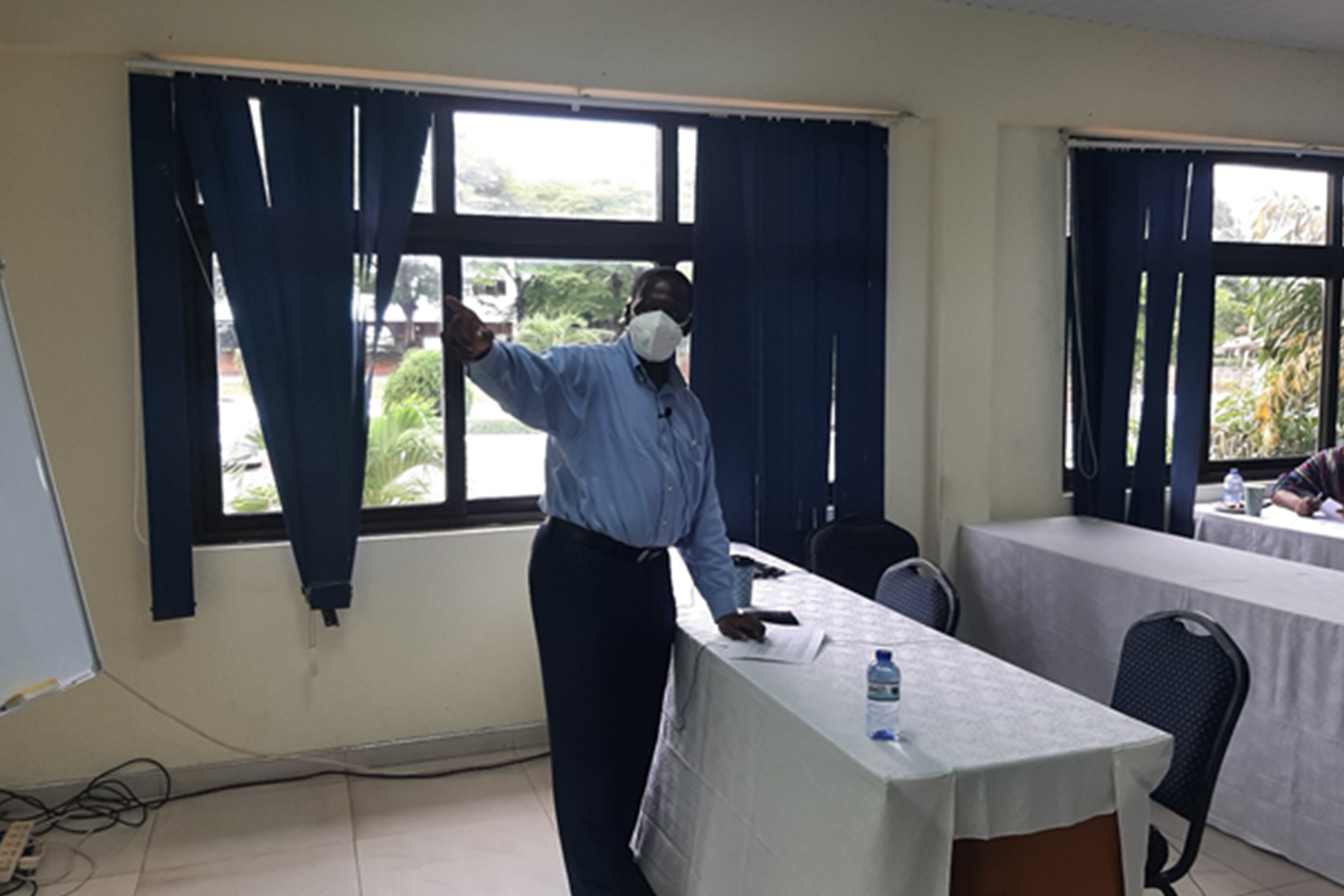
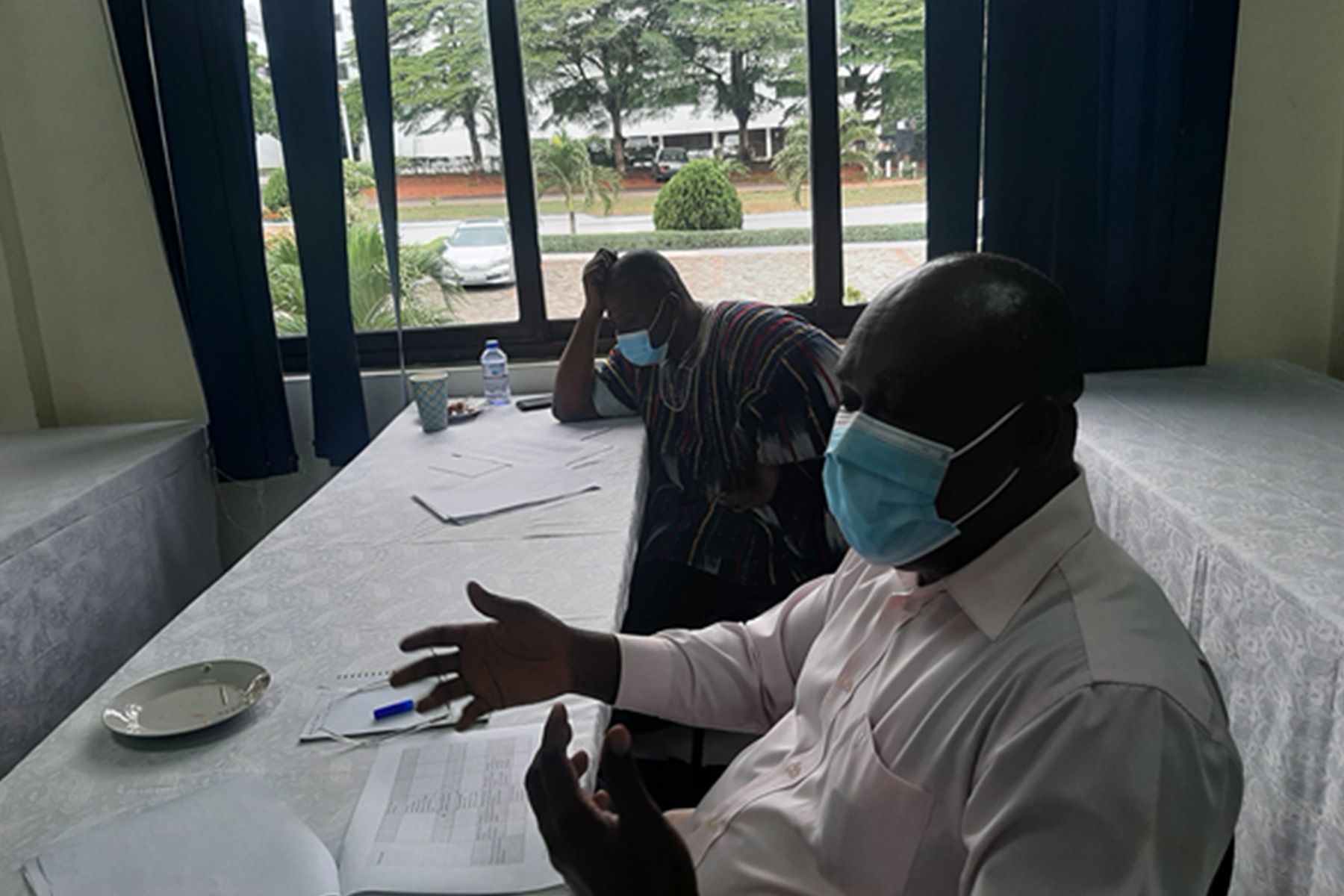
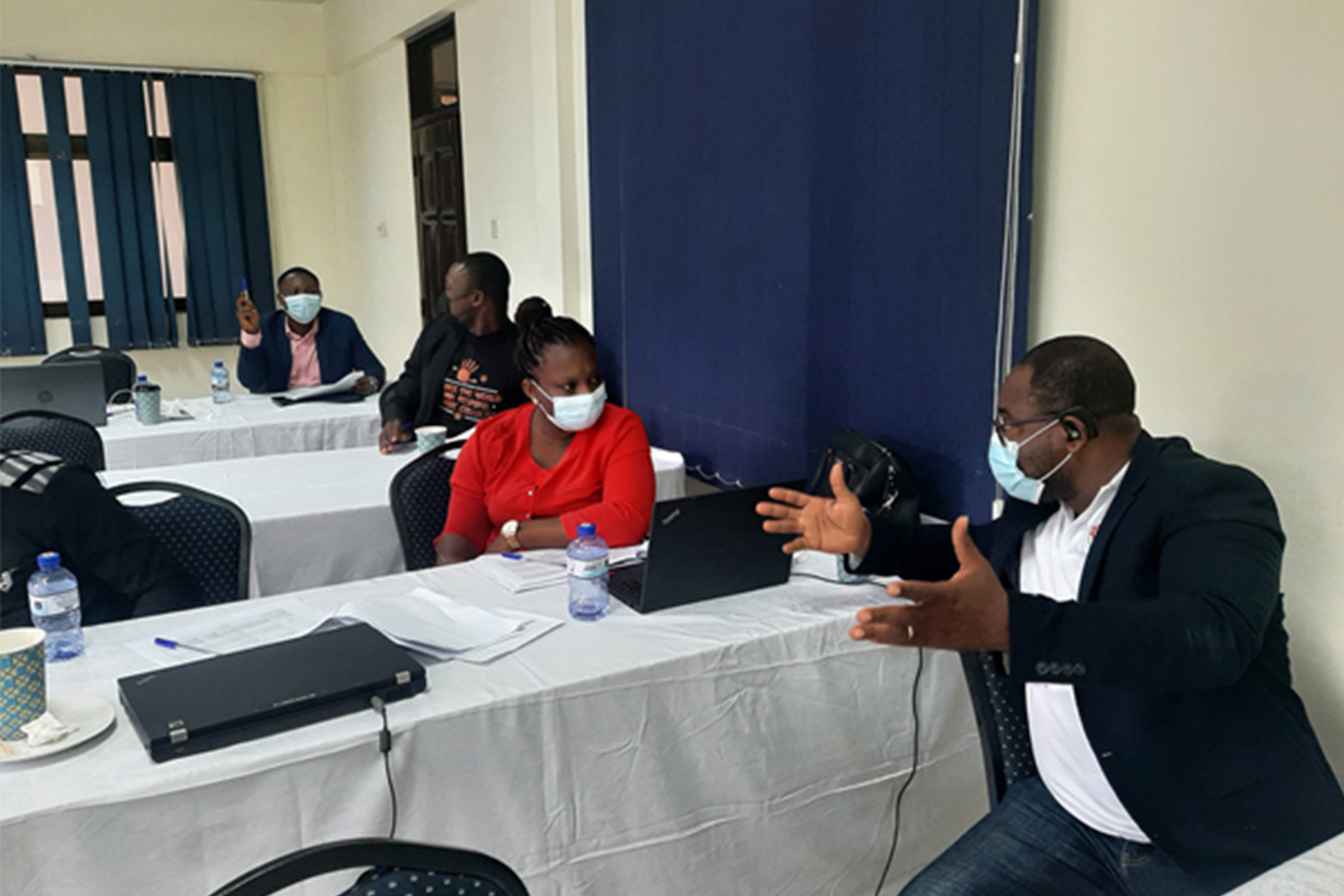
This news article was updated on 7 September to reflect that follow-up workshop has been held.

